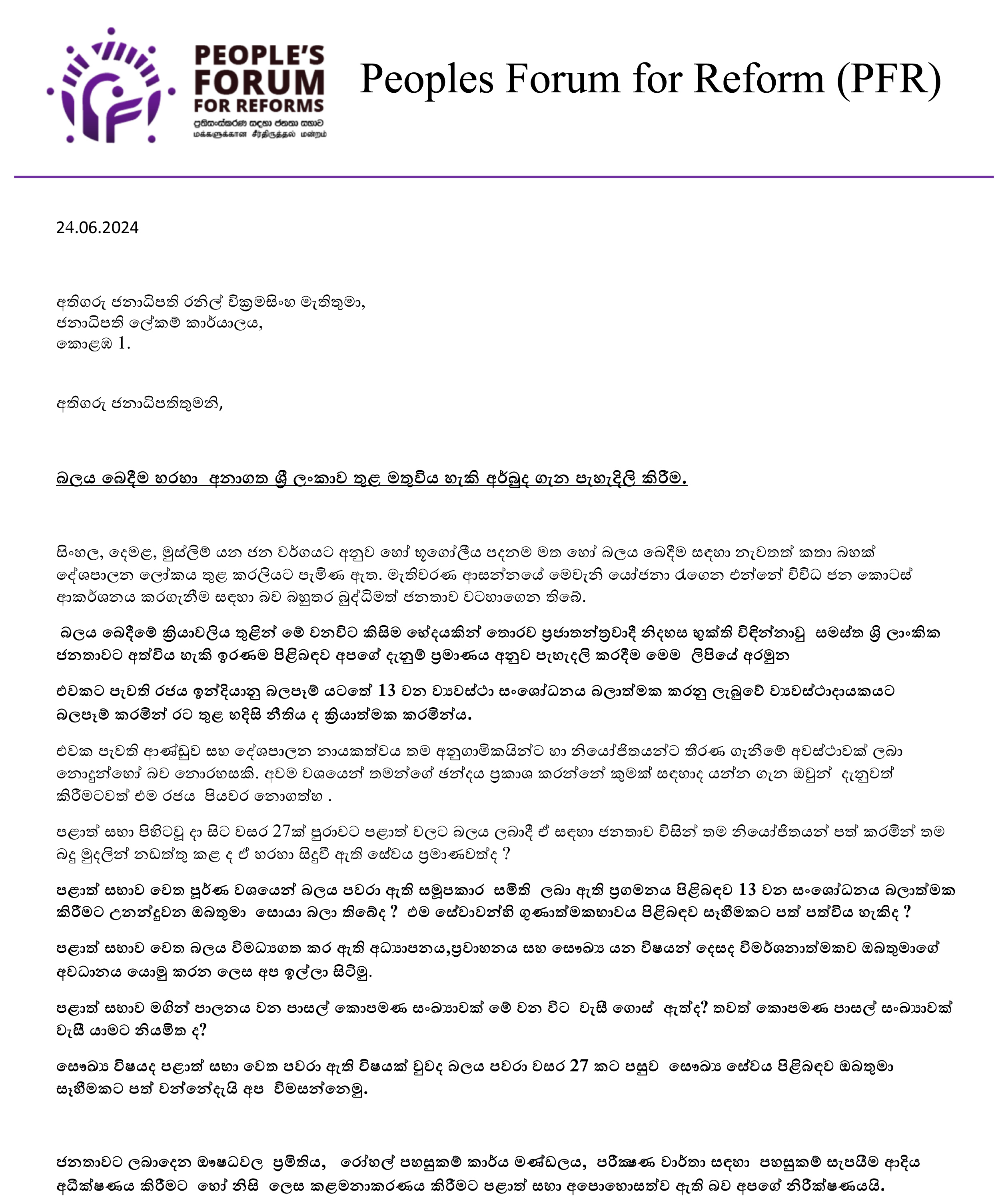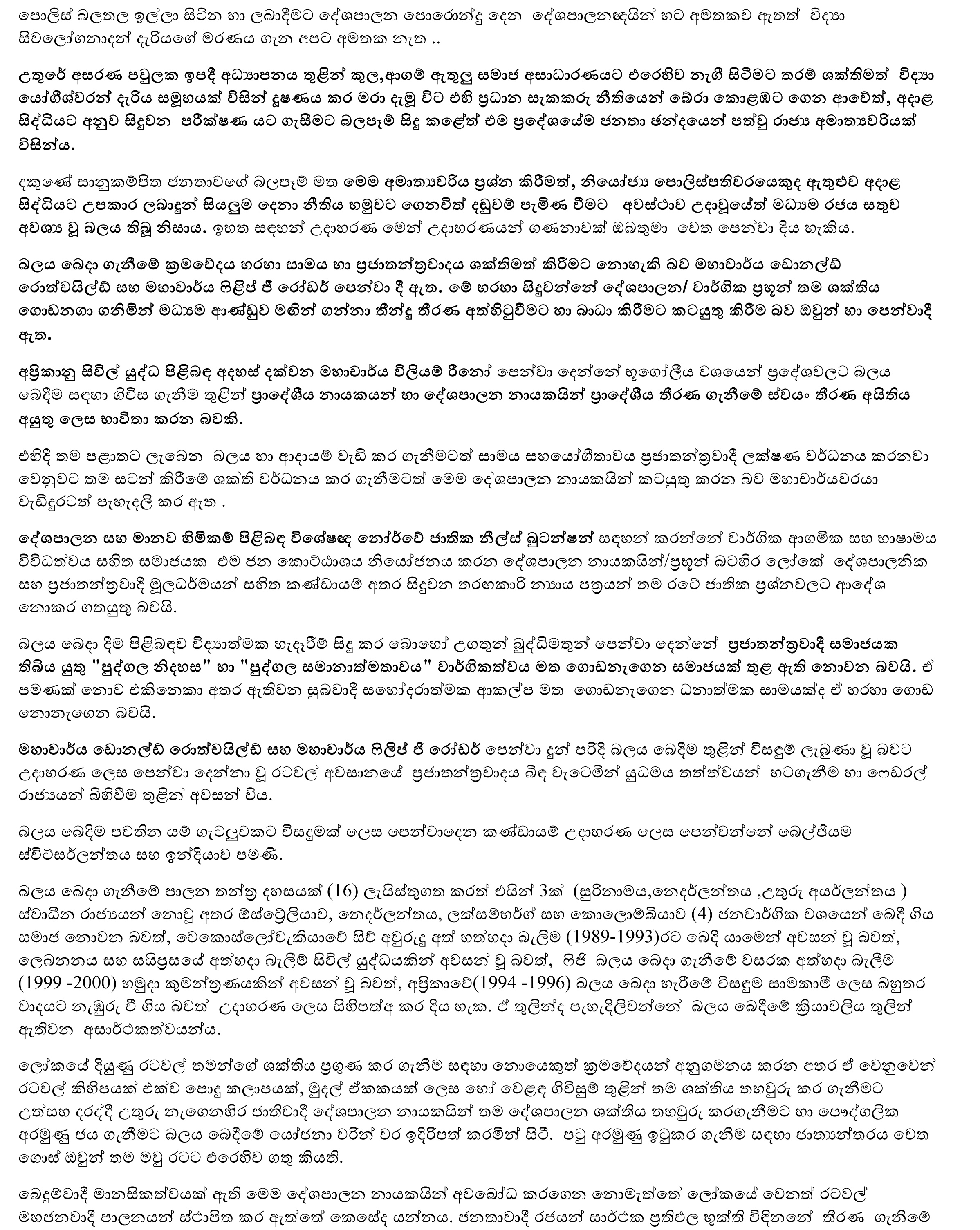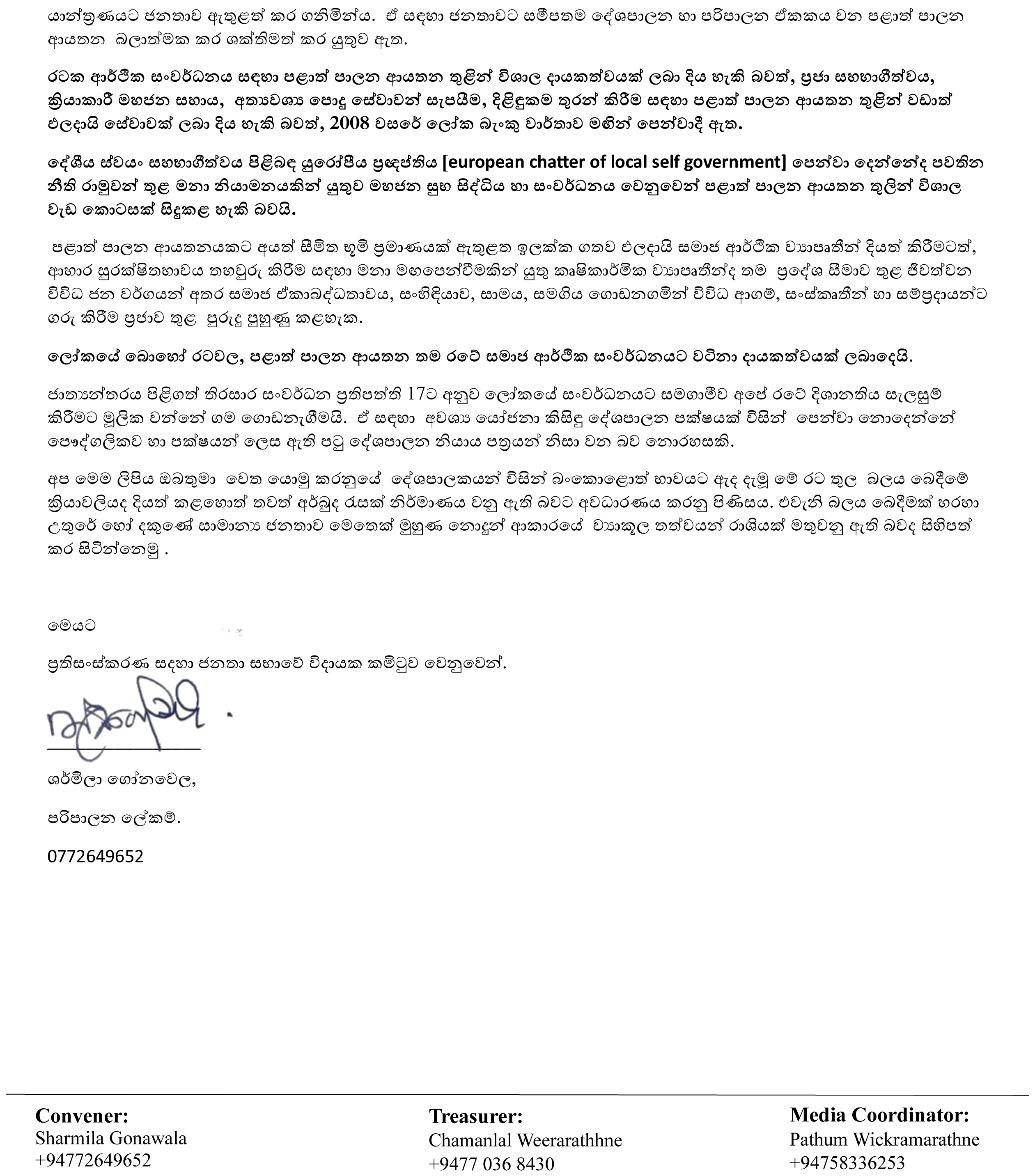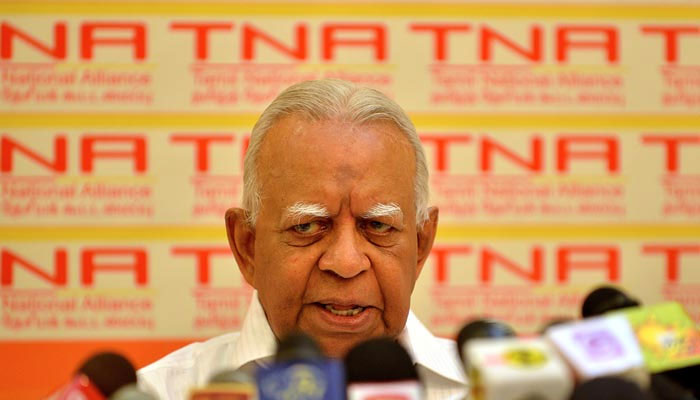Courtesy Adaderana
President Ranil Wickremesinghe highlighted today in Parliament that false propaganda regarding debt restructuring and related matters are being spread by various individuals both inside and outside the parliament.
He emphasized that while the government pursues policies beneficial for the country, critics continue to fabricate different narratives solely for political gain.
The President underscored that Sri Lanka has achieved a significant milestone among middle-income countries by successfully navigating the debt restructuring process, which he described as a notable accomplishment and good news for the nation.
President Ranil Wickremesinghe made these remarks during a special statement in Parliament aimed at informing about the on-going debt restructuring efforts.
To ensure the continued success of the government’s initiatives and to carry this Good News into the future the President called upon all parliamentarians to unite in the collective endeavour of advancing the country, transcending political affiliations. He stressed the importance of continuing the government’s program without turning back, irrespective of future changes in leadership.
The President emphasized his non-involvement in politics over the past two years, highlighting his commitment to making decisions solely for the benefit of the country rather than for political gain or popularity
Following is the full statement delivered by President Ranil Wickremesinghe in Parliament:
Honourable Speaker,
Last week, we were able to achieve another significant milestone in the challenging journey of restoring economic stability to a country that defaulted on its debts in 2022.
On June 26, we reached an agreement with our official creditors regarding the repayment of the loan. Representing our country, officials authorized by the Cabinet signed these agreements and contracts. That same night, I addressed the nation through electronic media to share these developments.
From the beginning of this arduous journey to rebuild the economy, I have consistently presented updates to Parliament. Initially, we outlined our plans before Parliament, and subsequently, we reported on the progress we have made.
Therefore, I would like to present the information about the current situation to the Parliament today.
Honourable Speaker,
About two years ago, after accepting the challenge of restructuring the country’s economy, I presented our four-step work plan to this Parliament:
1. Obtain extended credit facilities in consultation with the International Monetary Fund and establish financial discipline in the country.
2. Collaborate with international financial and legal experts Lazard and Clifford Chance to prepare the debt stabilization plan in coordination with the IMF and reach an agreement with the creditors.
3. Establish policies, rules, and programs to secure foreign investment, strengthen the export economy, and create a digital green economy. Prepare and present the necessary reforms to promote the country’s economy.
4. Achieve developed country status through a debt-free economy by 2048 through this program.
Since then, we have embarked on a challenging journey, knowing that success was achievable step by step. We forged ahead step by step. The 2023 and 2024 budgets further strengthened our program.
By March 2023, we secured approval for the IMF Extended Credit Facility and received the first instalment on March 20, 2023. Following a review of our progress, we received the second instalment on December 12, 2023, and the third instalment on June 12, 2024.
From the start of the IMF program, we initiated discussions on debt restructuring, continuing to rely on the expertise of international organizations Lazard and Clifford Chance.
Our foreign debt amounts to USD 37 billion, comprising USD 10.6 billion in bilateral debt, USD 11.7 billion in multilateral debt, and USD14.7 billion in commercial loans, including USD 12.5 billion in sovereign bonds.
There are various opinions expressed inside and outside this council regarding debt write-off, loan grace periods, extension of repayment periods, restructuring, and related matters. Some of these opinions are not true, and some are half-truths. Therefore, I would like to clarify the international practices and facts of debt restructuring at this time.
What constitutes this foreign loan? Where do lending countries get the money?
They lend us the tax money and the savings of their citizens.
Many people in our country suggest that we should seek concessions on foreign loans without making any commitments. However, this is neither practical nor feasible according to international practices. Just as we must be responsible with the tax money and savings of our own citizens, we must also make commitments when borrowing the tax money and savings of other countries. If we fail to make a commitment, the citizens of those countries will not support us.
Not only that, debt restructuring is also a challenging endeavour. International economic experts agree that it is a difficult and painful process for creditors, debtors, citizens of the debtor country, and mediators alike.
Official bilateral creditors never reduce the principal amount of a loan. What we can obtain are concessions such as extended loan repayment periods, grace periods, and reduced interest rates.
However, not understanding this reality, some blame the Sri Lankan government for not requesting a basic debt write-off. Others claim that if they come to power, they will negotiate with creditor countries to cut 50% of the initial loan amount. We must recognize that such actions require mutual agreement.
Creditors will not simply comply with our demands. These statements reveal a lack of understanding of international economic systems.
Neither the creditor nor the borrower has the authority to make the final decision on the extent of debt restructuring. The International Monetary Fund (IMF) makes that decision. They determine what kind of restructuring plan is necessary to make a country’s debt sustainable, based on an independent assessment of the economic strength of each country.
The IMF warned us long before our 2022 crisis that our country’s debt was unsustainable.
Furthermore, the methodology the IMF follows varies by country. There is one approach for low-income countries and another for middle-income countries.
Let me provide an example. Sri Lanka, being a middle-income country, was among the first to implement debt restructuring using the new debt sustainability analysis framework tailored for middle-income countries. According to the plan set for Sri Lanka, public debt must be reduced to below 95% of the Gross Domestic Product (GDP) by 2032. In contrast, the plan presented for Ghana, a low-income country, required them to reduce the present value of their public debt to below 55% of GDP by 2028.
Low-income countries follow a common action framework, which allows them to convene all their creditors on one platform to make decisions. However, this does not apply to us since we are a middle-income country. Therefore, debt restructuring in Sri Lanka is a more complex process.
Within this background, we had to negotiate separately with the Paris Club and India as members of the official creditor committee, as well as with China’s Exim Bank. However, we do not have the authority to offer special terms to any of these parties. Our greatest challenge has been to establish a set of common conditions that are treated equally by both parties involved.
Navigating this complex landscape amidst current geopolitical trends has not been easy, hindering our progress toward our goals.
Despite these formidable difficulties, we successfully reached an agreement with our foreign bilateral official creditors within just 15 months of initiating the IMF program. We are among the middle-income countries that have efficiently completed the debt restructuring process within a short timeframe, marking a significant achievement. This is indeed promising news.
Honourable Speaker,
I would like to update this House on the agreements reached with the Official Creditor Committee co-chaired by India, Japan, and France, as well as the Exim Bank of China, regarding debt restructuring:
• We have secured a grace period until 2028 for repaying the principal loan.
• Significant reductions have been made to the interest rates, with the new rate set at 2.1% or lower.
• The repayment period for clearing the entire loan has been extended by 8 years, meaning our debt should now be fully settled by 2043.
• There is flexibility to gradually increase principal loan repayments, allowing us to defer loan servicing costs. This has resulted in Sri Lanka retaining a debt service of USD 5 billion.
• Through economic restructuring, rebuilding reserves, creating fiscal buffers, and enhancing debt repayment capacity, we aim to position the economy strongly for future debt repayments. This approach is creating considerable financial flexibility.
Honourable Speaker,
In 2023, we successfully finalized Domestic Debt Restructuring (DDR) operations. Throughout this process, we took great care to ensure the stability of our country’s financial institutions, prevent any institutional challenges, and safeguard our depositors from risks.
Subsequently, we have successfully completed the restructuring of foreign bilateral debts amounting to USD 10 billion.
According to international conventions on debt restructuring, multilateral debts are not included in this arrangement.
Next, we are in the process of finalizing the restructuring plan for commercial debts totalling USD 14.7 billion. Discussions on this matter are currently progressing successfully.
We anticipate completing all these tasks within a short timeframe. Following this, I will submit all agreements and documents related to debt restructuring to the Committee on Public Finance of Parliament. I urge the Public Finance Committee to give careful and thorough consideration to these matters.
Honourable Speaker,
We were able to achieve such progress in a short period due to the strategic path we have followed. I would also like to highlight the benefits to our country resulting from these successful outcomes.
Since announcing our inability to repay debts in April 2022, no foreign country has provided us with loan assistance, as they are legally unable to do so under these circumstances.
However, during this time, India and Bangladesh, as friendly nations, offered us short-term loan assistance. International organizations like the World Bank and the Asian Development Bank also provided concessional loans through various channels. Apart from these efforts, no other country had the capability or authorization to offer us long-term loans.
Certain political groups have been spreading misinformation about our foreign debt on social media. A post shared by a supporter of our MP Anura Kumara Dissanayake claimed the following:
Good News. When Pina” took the country, the total foreign debt was USD 71 billion. Now it is USD 100 billion.
We have debated with MP Anura Kumara Dissanayake, and there have been disagreements. But he has not insulted me directly in such a manner. However, some of your supporters are also actively working against you.
Let me clarify the relevant points through this post.
The total foreign debt of our country is USD 37 billion, not 71 billion as claimed by this individual, which is a false statement. Moreover, they suggest that we have borrowed up to USD 100 billion in the last two years, but it’s widely known that no country has provided us with loans since we declared default. Legally, no country has the authority to lend to us under these circumstances.
What is the purpose of spreading such misinformation? Are these actions intended to bolster support for your party in the future? It’s worth reflecting on these questions.
Honourable Speaker,
Following this MoU, the possibility of bilateral foreign loans has reopened for us. We now have the opportunity to receive loan assistance again from our official creditors such as the Paris Club and the Exim Bank of China.
Additionally, several projects that were initiated with foreign loan assistance and halted projects can now be resumed. Being categorized as a country unable to meet its debt obligations led to the suspension of many development projects funded by various countries, particularly in the construction sector. Now, we can restart these projects anew.
This marks a significant advancement for our construction industry, contributing greatly to our economic strength and expanding job opportunities.
Another consequence of halting foreign projects was a decline in our economic growth rate. Despite this setback, we have made some progress. Once these projects are resumed with international assistance, we will be able to accelerate our development even further.
Honourable Speaker,
I would like to address some of the myths circulating in society regarding foreign loans.
A developing country like Sri Lanka cannot rely solely on its own resources, as we do not yet generate sufficient income to be self-sustaining. Therefore, we must seek loans and grants.
However, it is crucial that we invest these funds wisely, rather than using them for daily expenses or salary increases. This has been one of the primary mistakes our country has made since gaining independence.
Loans were used to increase wages, create government jobs, provide free food, reduce the costs of food, fuel as well as electricity, and also to cover the losses of public enterprises.
Some political groups promise to continue this approach, pledging wage increases, tax reductions, and various concessions without addressing how they will fund these initiatives. They make numerous promises but fail to explain how they will generate the necessary revenue.
Since assuming my responsibilities, I have put an end to this unsustainable practice, which has been perpetuated by many previous governments.
Honourable Speaker,
I will now highlight the financial benefits expected from restructuring our foreign debt.
By 2022, our expenditure on debt payments denominated in foreign currency amounted to 9.2% of GDP. It is projected to be reduced to 4.5% between 2027 and 2032. Additionally, 34.6% of GDP was allocated for gross financial needs by 2022. It is expected to be maintained at less than 13% between 2027 and 2032.
This strategic adjustment will enable greater funding allocation to government services, alongside potential reductions in domestic interest rates.
Honourable Speaker,
I have consistently urged members of this House to unite in rebuilding our country’s economy, setting aside political differences.
Even longstanding political adversaries have openly supported these efforts, considering the national interest, while others have quietly offered their backing. However, there remains a group that continues to criticize and disrupt.
During this economic crisis, I advocated for immediate IMF assistance. When certain opposition groups boycotted President Gotabaya Rajapaksa’s all-party discussion, I participated alone as a Member of Parliament and firmly voiced my stance. I emphasized that seeking IMF assistance is the only viable path forward for us.
Several months later, in a context where no one else stepped up to the challenge of revitalizing the country’s economy, I took on that daunting task. I embraced this risky challenge for the sake of my country, my homeland, and its future.
I committed publicly to overcoming these challenges, akin to traversing a perilous vine bridge. I extend my appreciation to all those who rallied behind this initiative, and I express my gratitude once more for their unwavering support.
Despite numerous challenges, we pushed forward with negotiations with the IMF.
Critics initially claimed that our negotiations with the IMF would fail.
However, we proved successful in these negotiations.
Subsequently, critics shifted their stance. Some argued that no country had ever fully recovered from IMF interventions, while others declared their intention to disregard IMF agreements upon assuming power.
Despite these challenges, we persevered and continued to achieve success.
Critics then changed their approach once more, referencing survey reports to highlight perceived shortcomings in meeting IMF conditions. They labelled our program a failure and asserted they would refuse the second instalment despite accepting the first.
Yet, we successfully secured the second instalment as well.
At that point, critics altered their stance once more.
A survey agency reported that we had fulfilled less than 18% of the IMF conditions, attempting to unsettle the country by suggesting we might not receive the third instalment.
Despite this, we successfully secured the third instalment.
Critics then shifted their focus, asserting doubts about our ability to effectively restructure our debt even after receiving the third instalment. Additionally, they endeavoured to influence creditor countries against agreeing to our restructuring efforts. Nonetheless, we achieved success in restructuring our debt.
Once again, the critics changed their narrative.
It is now being argued that debt restructuring holds no value since our credit ratings have not improved, leaving us classified as a financially bankrupt nation.
Allow me to elaborate on this matter.
As of 2019, our international credit rating stood at level B. By 2020, Sri Lanka had been downgraded to level C. This downgrade occurred well before any debt default declaration, indicating that credit ratings are influenced by various factors beyond debt solvency alone.
We have achieved several notable successes: successfully completing domestic debt restructuring, restructuring foreign bilateral debt, and progressing swiftly with the remaining commercial debt restructuring.
As a result, our economic indicators are improving. International financial institutions will likely work towards upgrading our credit ratings based on these indicators in due course.
That’s when our critics change their stance once more.
Honourable Speaker,
There exists a distinction between us, the government and these critics. There is a difference between us, the government, and these boastful individuals. There is a distinction between us and these opportunists.
We are steadfastly advancing with policies and actions that serve the best interests of our country.
They fabricate stories day after day to gain power.
In this parliament, there is a group attentively and vigilantly observing these developments. Hailing from various political parties, they maintain independent and impartial oversight. They are patiently assessing whether their allegiance lies with a party or an individual, or if it truly stands with the country’s interests.
Honourable Speaker,
Reflecting on the situation two years ago, can we afford to forget its impact—not only economically, but also socially and politically?
Some responded unfavourably to the positive news of debt restructuring, exhibiting unwarranted hostility akin to a serpent doused with kerosene. In the context of social media, it resembled porcupines bristling with defensive reactions.
Why is this so?
Is the success of the IMF program seen as good or bad news?
Is it good or bad news that queues for fuel, gas, and kerosene have vanished?
Is the reduction of bank interest rates from over 30% to 9% considered a good news or bad news?
Is the significant drop in inflation from 70% to 1.7% by last month seen as a Good news or bad news?
Is the reversal from six consecutive quarters of economic contraction to growth considered a Good news or bad news?
Is the increase in foreign reserves from a low point in May 2022 to $ 5410 million, Good news or bad news?
Is the strengthening of the rupee seen as a Good news or bad news??
Is the shift from a primary account deficit to a surplus considered a Good news or bad news?
Covering the budget deficit without resorting to printing money is it a good news? or bad news?
Is a current account surplus in our balance of payments considered a good news? or bad news?
The party leaders, who previously faced a risk of violence just for visiting Galle face, can now travel safely from the Southern to the Northern tip of the country, is it good news or bad news ?
Has the transformation of a country once plagued by terror, where parliamentarians feared attending parliament or staying in their homes, into a place where fear has significantly diminished, good news or a bad news?
Beneficial for the nation, is it good news or a bad news?
**
Honourable Speaker,
This path is our only viable option. It is the only route to ensure that this good news resonates into the future.
Our past achievements underscore this necessity repeatedly. We must persevere through the challenging journey ahead, akin to crossing a precarious vine bridge. There can be no turning back, regardless of who assumes power.
Any deviation from this path would lead to dire consequences within a month or two—shortages of gas and electricity loom ominously.
The country faces the risk of a severe calamity, one that could set us back irreparably for 25 to 30 years.
Honourable Speaker,
In the Caucasian Chalk Circle, (Hunuwataye kathawa) Grusha faces a critical decision: to carry the child and journey over the vine bridge, her only viable option at the time. Despite nearby scepticism and fearful inquiries about her fate, Are you going to die? Do you see the precipice…! Like the underworld…!!”
However, Grusha makes a daring decision. She bravely chooses to undertake this risky path.
Many anticipate her failure as she crosses the precarious vine bridge. However, against all odds, Grusha successfully reaches safety with the child.
An onlooker, reflecting on their initial doubt, exclaims in frustration:
I thought she was going to fall…. damn it…”
Even today, such pessimism persists in our society.
I urge those with such despairing thoughts to change their mind-set for the betterment and future of our nation. Instead of waiting for failure to happen, let us focus on proactive efforts to build and uplift our country. Let us dedicate ourselves to this endeavour with diligence and determination.
Honourable Speaker,
I urge all esteemed members of this assembly, whether they support, oppose, respect, or admire me, to prioritize the welfare of our nation.
Let us all remember one thing: my decisions are not driven by political power or popularity. They are made solely for the country’s benefit. Over the past two years, my actions have been devoid of political manoeuvring. Every decision has been aimed at national progress, not personal gain.
I know there are many others in this chamber who share my deep love for our country, placing its interests above all else.
I call upon each of them to join hands in the arduous task of rebuilding our nation, akin to nurturing these blossoming flowers.
Together, let us unite and lift up our motherland once more.
–PMD–
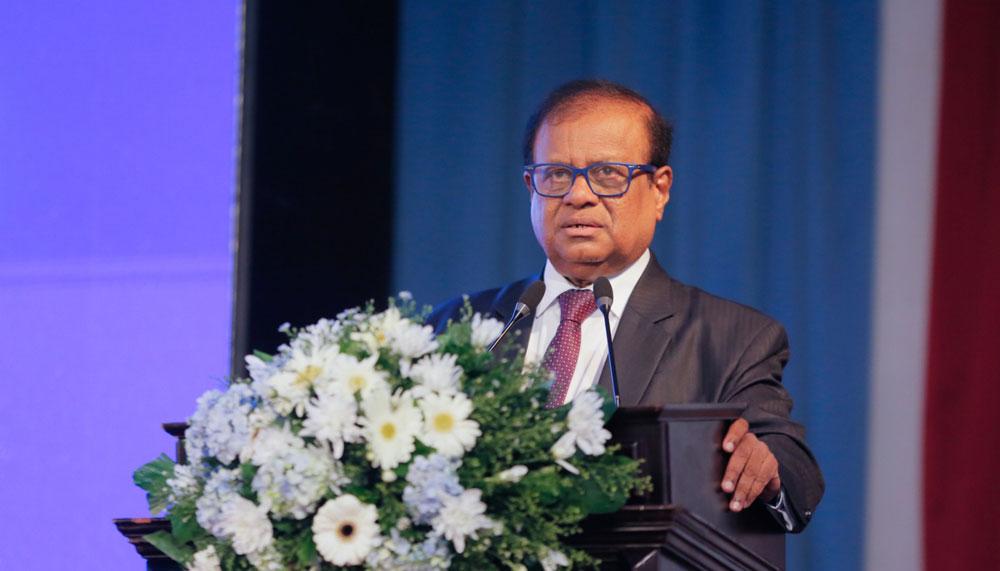
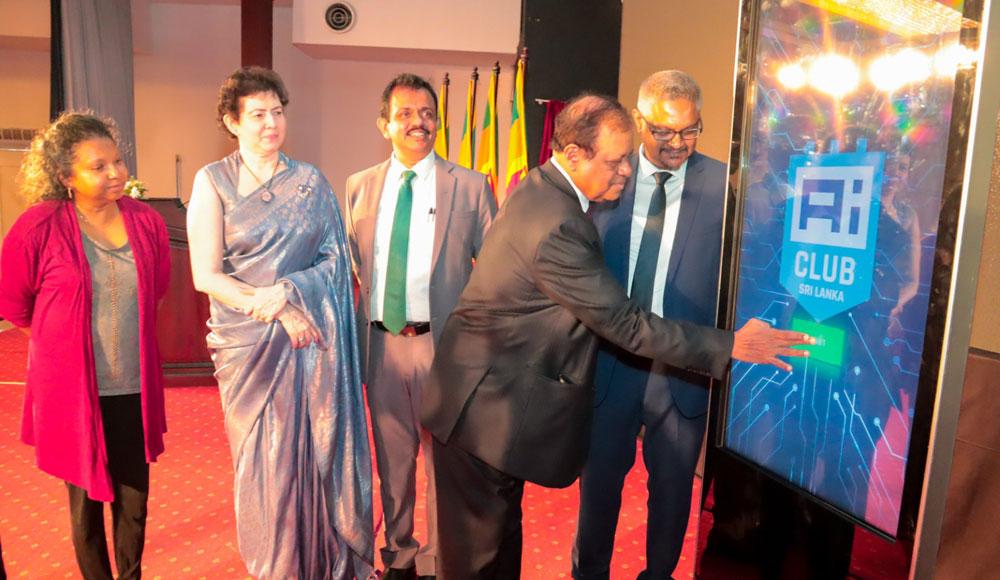
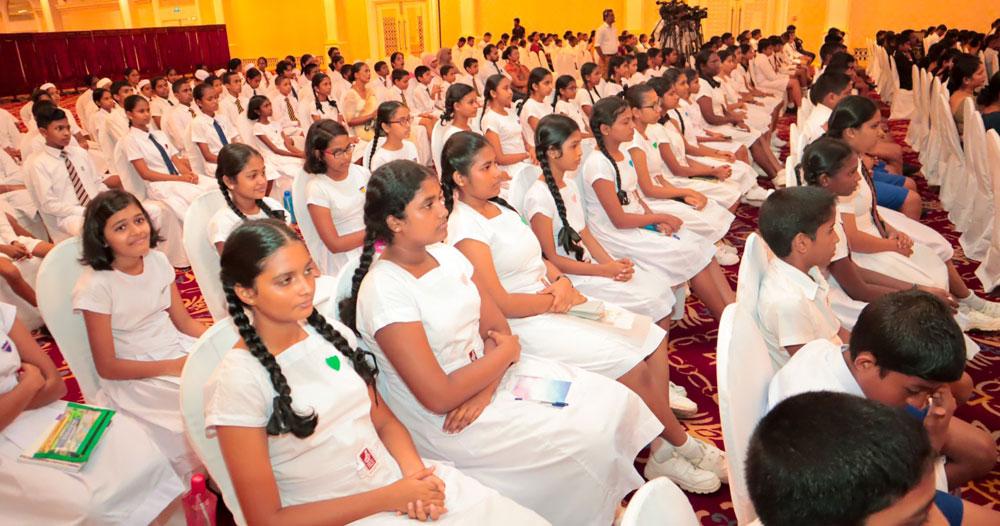

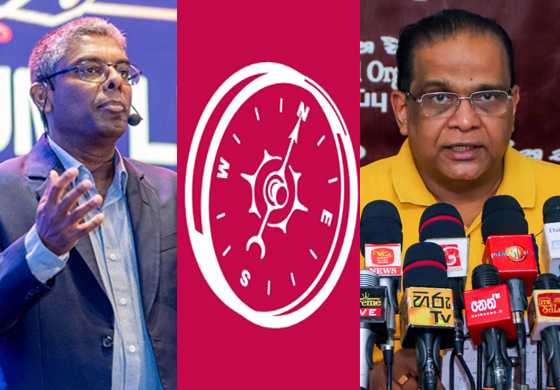 පසුගිය ජූනි මස 29 දින මාලිමාවේ ‘ක්වොන්ටම් ලීප්’ දේශණයකදී මහාචාර්ය ගෝමික උඩුගමසූරිය මහතා විසින් එලි දක්වන ලද ‘විද්යා හා තාක්ෂණ ප්රතිපත්තියේ’ අයිතිය පිළිබඳව ඇති සංකූලතාවය පිළිබඳව ප්රකාශයක් කරමින් ගෝලීය ශ්රී ලාංකික සංසදයේ විධායක ලේකම් යසස් ධර්මදාස මහතා පවසා සිටියේ මාලිමාව යම්කිසි ‘ඉන්ටර්ලෙක්චුවල් ප්රොපර්ටි’ හොරකමක යෙදී ඇතිදැයි සැකයක් මතුවන බවයි.
පසුගිය ජූනි මස 29 දින මාලිමාවේ ‘ක්වොන්ටම් ලීප්’ දේශණයකදී මහාචාර්ය ගෝමික උඩුගමසූරිය මහතා විසින් එලි දක්වන ලද ‘විද්යා හා තාක්ෂණ ප්රතිපත්තියේ’ අයිතිය පිළිබඳව ඇති සංකූලතාවය පිළිබඳව ප්රකාශයක් කරමින් ගෝලීය ශ්රී ලාංකික සංසදයේ විධායක ලේකම් යසස් ධර්මදාස මහතා පවසා සිටියේ මාලිමාව යම්කිසි ‘ඉන්ටර්ලෙක්චුවල් ප්රොපර්ටි’ හොරකමක යෙදී ඇතිදැයි සැකයක් මතුවන බවයි. 
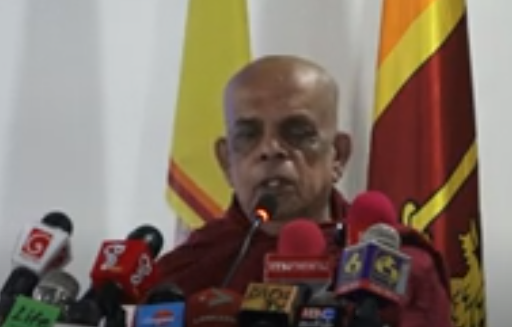 ආණ්ඩුක්රම ව්යවස්ථාවට අනුව කටයුතු කිරීම මන්ත්රීවරුන්ගේ, ඇමැතිවරුන්ගේ, අගමැති හා ජනාධිපතිවරයාගේ මෙන්ම සියලු දෙනාගේ වගකීමක් වන බවත්, බහුතරයේ කැමැත්ත ප්රජාතන්ත්රවාදය ලෙස හැඳින්වුවද මෙරට එම ප්රජාතන්ත්රවාදය පිළිබඳව බරපතළ ගැටලුවක් ඇති වී තිබෙන බවත් පූජ්ය බෙංගමුවේ නාලක හිමියන් පවසති.
ආණ්ඩුක්රම ව්යවස්ථාවට අනුව කටයුතු කිරීම මන්ත්රීවරුන්ගේ, ඇමැතිවරුන්ගේ, අගමැති හා ජනාධිපතිවරයාගේ මෙන්ම සියලු දෙනාගේ වගකීමක් වන බවත්, බහුතරයේ කැමැත්ත ප්රජාතන්ත්රවාදය ලෙස හැඳින්වුවද මෙරට එම ප්රජාතන්ත්රවාදය පිළිබඳව බරපතළ ගැටලුවක් ඇති වී තිබෙන බවත් පූජ්ය බෙංගමුවේ නාලක හිමියන් පවසති. දණ්ඩ නීති සංග්රහය යටතේ සමලිංගික සබඳතා සාපරාධී වරදක් නොවන බවට සංශෝධනය කිරීමට ශ්රී ලංකා පොදුජන පෙරමුණේ පාර්ලිමේන්තු මන්ත්රී ප්රේම්නාත් සී. දොළවත්ත විසින් ඉදිරිපත් කරන ලද පෞද්ගලික මන්ත්රී පනත් කෙටුම්පතට තම පක්ෂය සහාය ලබාදෙන බව ජාතික ජන බලවේගයේ පාර්ලිමේන්තු මන්ත්රී ආචාර්ය හරිනි අමරසූරිය පවසයි.
දණ්ඩ නීති සංග්රහය යටතේ සමලිංගික සබඳතා සාපරාධී වරදක් නොවන බවට සංශෝධනය කිරීමට ශ්රී ලංකා පොදුජන පෙරමුණේ පාර්ලිමේන්තු මන්ත්රී ප්රේම්නාත් සී. දොළවත්ත විසින් ඉදිරිපත් කරන ලද පෞද්ගලික මන්ත්රී පනත් කෙටුම්පතට තම පක්ෂය සහාය ලබාදෙන බව ජාතික ජන බලවේගයේ පාර්ලිමේන්තු මන්ත්රී ආචාර්ය හරිනි අමරසූරිය පවසයි.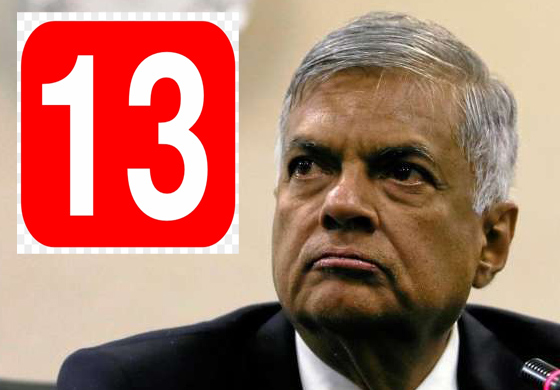 බලය බෙදීම හරහා අනාගත ශ්රී ලංකාව තුළ මතුවිය හැකි අර්බුද ගැන පැහැදිලි කරමින් ප්රතිසංස්කරණ සඳහා වූ ජනතා සභාවේ පරිපාලන ලේකම් ශර්මිලා ගෝනවෙල මහත්මිය විසින් ජනාධිපති රනිල් වික්රමසිංහ මහතා වෙත ලිපියක් යොමුකර තිබේ.
බලය බෙදීම හරහා අනාගත ශ්රී ලංකාව තුළ මතුවිය හැකි අර්බුද ගැන පැහැදිලි කරමින් ප්රතිසංස්කරණ සඳහා වූ ජනතා සභාවේ පරිපාලන ලේකම් ශර්මිලා ගෝනවෙල මහත්මිය විසින් ජනාධිපති රනිල් වික්රමසිංහ මහතා වෙත ලිපියක් යොමුකර තිබේ.